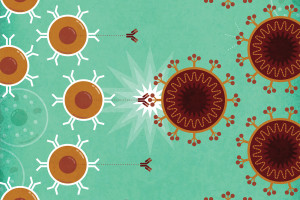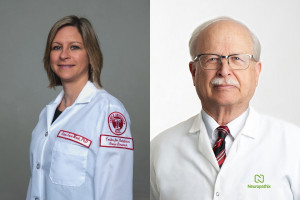Here’s What Health Professionals Can Learn From Instagram Influencers
A new study from researchers at Drexel University found that narrative posts on Instagram may be an effective tool in curbing misinformation about vaccines.

Philip Massey is an associate professor of Community Health and Prevention at Drexel University. / Courtesy
Social media is becoming an increasingly powerful tool for sharing health-related messages, but not every post has what it takes to go viral. And on many social media platforms, where fact-based messages tend to take a backseat to messages that entertain, healthcare professionals face the unique challenge of needing to educate and inspire.
A new study by researchers at Drexel University and Thomas Jefferson University found healthcare professionals may see greater success with public information campaigns if they apply the narrative storytelling method that many influencers use on social media. The researchers are among the first to investigate narrative messages on Instagram and how they might affect a parent’s likelihood of getting the human papillomavirus (HPV) vaccination for their child amid growing misinformation about vaccines online.
“In recent years, we’re seeing a resurgence of misleading anti-vaccination messages and related misinformation spreading through social media,” said the study’s senior author Philip Massey, an associate professor of community health and prevention in Drexel’s Dornsife School of Public Health. “By studying what makes these messages so effective online, we can improve fact-based, pro-vaccination messaging aimed at improving public health.”
Massey’s team analyzed 360 randomly selected Instagram posts from a pool of over 3,000 English-language posts about HPV vaccination. Although a majority of the posts were pro-vaccine (56 percent), the anti-vaccine messages that featured a narrative structure experienced much higher engagement, averaging 62 more “likes” than pro-vaccine posts that only shared actionable information about the vaccine.
The researchers suggest that pro-vaccine posts may see more engagement if they continue providing information and evidence while incorporating a storytelling approach. Massey says social media posts that tell personal stories, share experiences, or attempt to tap into an audience’s emotions are generally more effective than those that don’t.
“Many people are using these platforms as tools to look for health information. So, whether it’s a new mom looking at a Facebook group for health tips or a young person thinking about reproductive health issues, they’re reaching out to their networks on social media to get more information about it and also to communicate their experiences within these different topics,” Massey said.
“Healthcare professionals can help parents navigate through their uncertainty about vaccines, but science alone may not be the thing that the parent needs to cope with that uncertainty; they may need something more emotional to get through.”
According to Massey, not all healthcare professionals need to use social media as part of their public information campaigns, but those who don’t run the risk of missing out on a huge audience.
A recent Pew Research Center report found that more than a third of all adults in the U.S., and 71 percent of adults between the ages of 18 and 24 use Instagram. Massey hopes the study will help healthcare professionals understand how broad anti-vaccine sentiments are on Instagram and learn how they might begin to employ commonly-used narrative techniques for pro-vaccine messages.
HPV is the most common sexually transmitted infection in the U.S. and can cause six different types of cancer in women and men, including nine out of every ten cases of cervical cancer and seven out of ten oral cancers, according to the CDC. The CDC recommends that all children ages 11 and 12 receive the vaccine; just over half of those eligible are fully up-to-date on vaccination, according to an August 2019 CDC report.
The research adds to a growing volume of work looking at social media’s impact on the public health push for HPV vaccination.
In recent related studies, Massey and his colleagues analyzed nearly 200,000 tweets about HPV vaccination and found that 39 percent of tweets were positive, while only 25 percent were classified as negative. The researchers also published a study in February 2018 offering insight into how and when health professionals tweet about the HPV vaccine. In the future, Massey’s team plans to use large-scale data to determine whether narrative posts increase HPV vaccination more effectively than non-narrative posts on Twitter.


